RUSSIA, a predator in AFRICA
What you want to understand: 🤔
- Why does Russia favour political cooperation over economic cooperation to anchor its presence in Africa ?
- Who are the mercenaries of Yevgeny Prigozhin’s Wagner group and what are they known for?
- Why does Russia’s narrative in Africa explicitly target former colonising powers?
- How does Russia interfere in African politics?
- What is the nature of Russia’s economic exchanges with Africa?
- Which Russian companies are present on the continent and what are their links with the Wagner group?
- What are the specificities of the Russian presence in the Central African Republic, in Mali, in Burkina Faso, in Sudan and in South Africa?
- What can limit Russia’s influence in Africa?
Since the war in Ukraine, Africa is of great importance for the Kremlin as it is isolated on the international stage. The distribution of votes during the UN vote to condemn the invasion of Ukraine illustrates Russia’s already significant sway on African countries: 17 abstained, 7 were not present and Eritrea voted against.
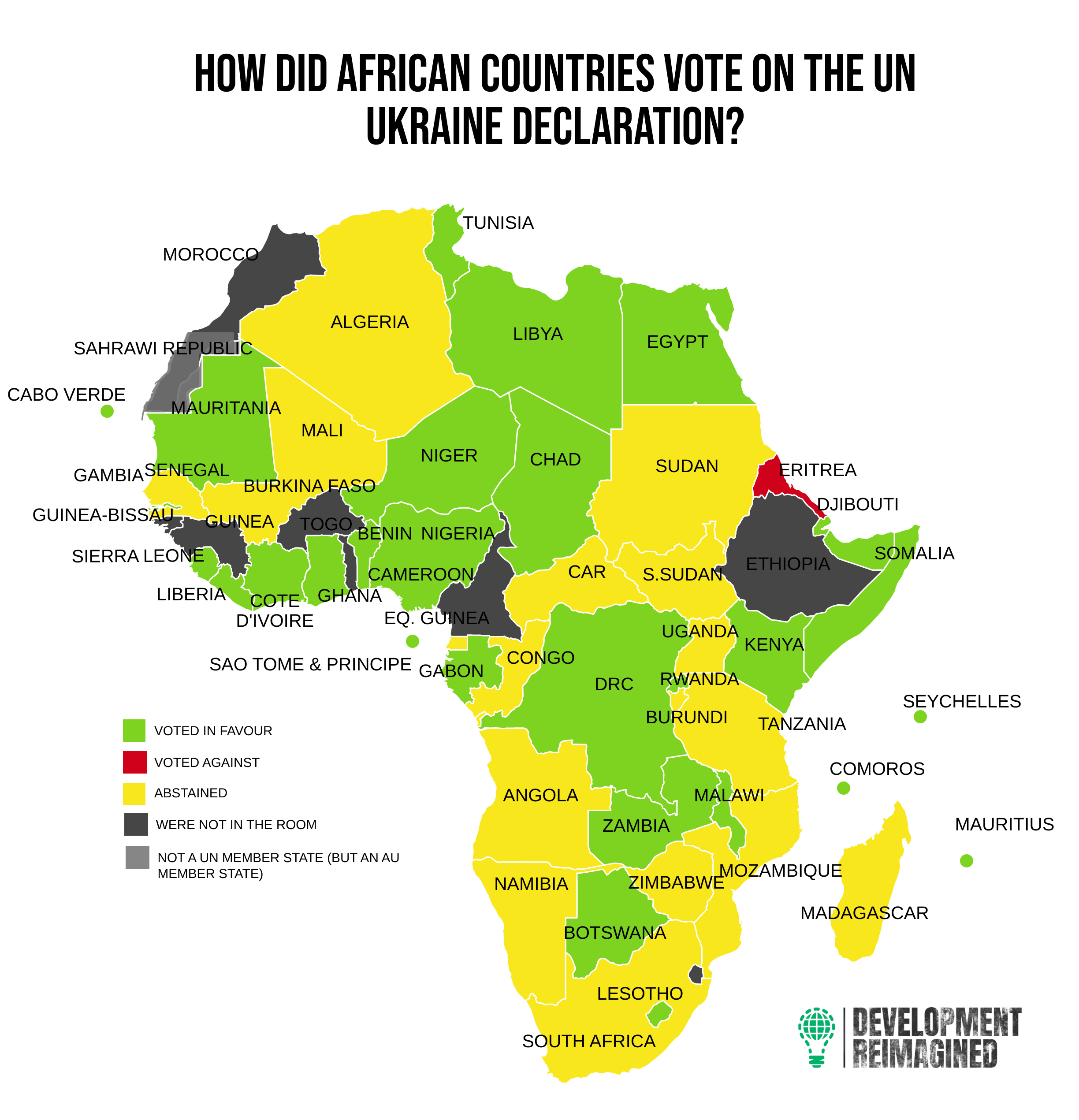
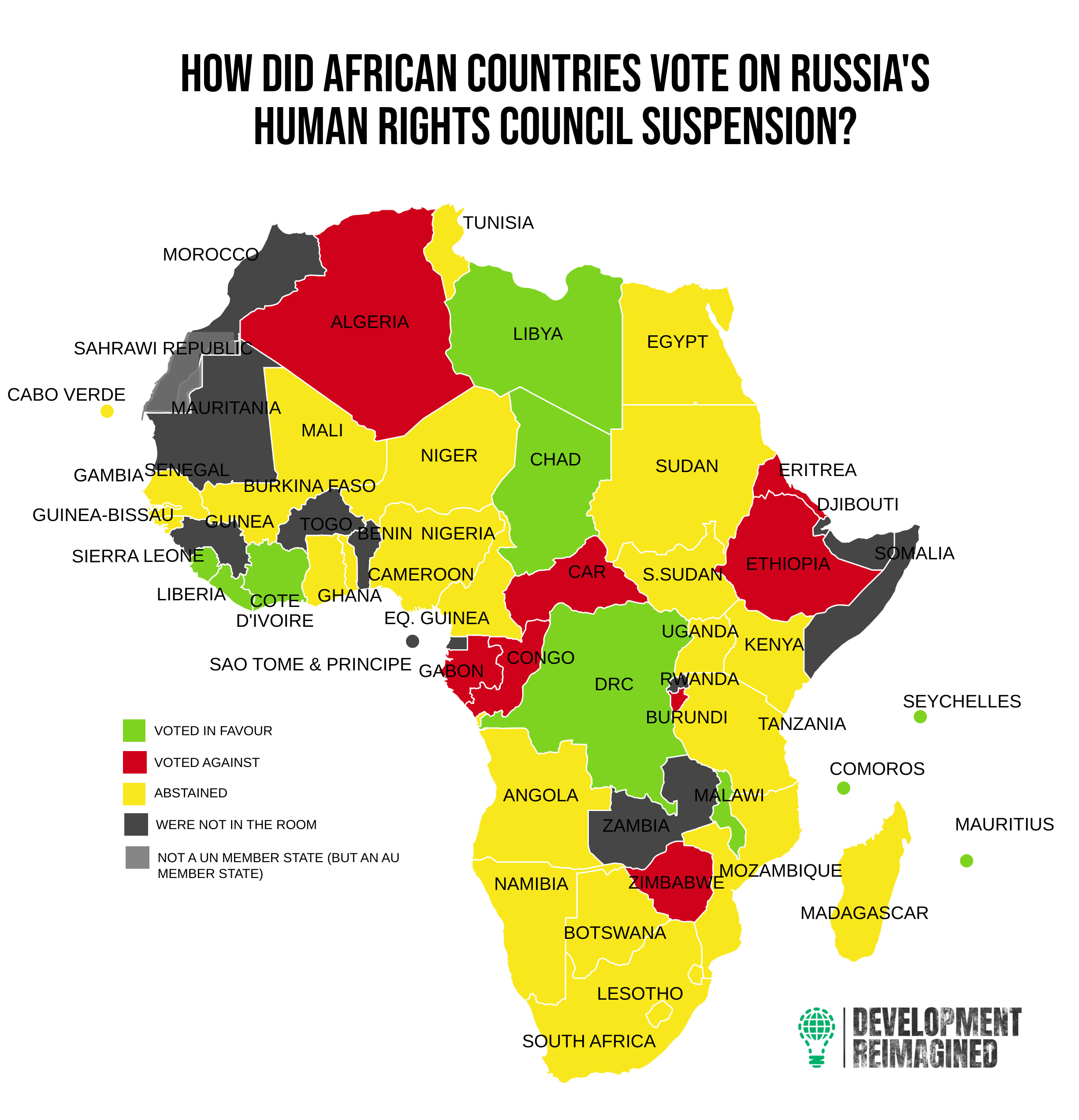
I. Russia’s strategy in Africa: political cooperation to initiate contact and then private actors take the lead
As a reminder, Russia’s 3 main objectives on the international stage are:
- Replicating its regime in its “near abroad” (i.e. former Soviet republics)
- Maximising its control over Western democracies
- Developing a network of vassal countries (especially in Africa) in order to exploit their resources and obtain their diplomatic support in international organisations
So as to achieve its goal in Africa, Russia competes with other global powers such as France, the US, the EU, China, Turkey… All of them approach this rivalry as a zero-sum game.
According to Peter Pham, former US special envoy to the Sahel, Russia “looks opportunistically where, for very little cost, they can poke at the West”. One of the risks for Europe is that Russia starts controlling human migration routes that cross the Sahel towards Europe. As a consequence, Russia could get leverage over its Western rivals by manipulating and shaping migration waves, as Turkey does with Middle Eastern migrants. However, it is only a potentiality, not a reality yet.
Political cooperation as a basis for economic cooperation
In order to establish connections and anchor its presence on the continent, Russia relies primarily on political cooperation, unlike China for whom economic cooperation comes first.
As a matter of fact, using economic cooperation first carries the threat of seeing one’s influence fall to nothing as soon as a competitor comes in with a better trade deal. Russia could only address this threat by improving its own offers but it is actually unable to compete with Western powers’ investments and Chinese loans and giant infrastructure projects in Africa.
However, resorting to political cooperation as a first step before economic, military or cultural cooperation with an African partner appears more appropriate for Russia. Even though this strategy is vulnerable to regime changes, Russian agents can prevent it through political interference and opinion manipulations. Way less costly than economic competition, it is something in which Russians have “some” experience and at which they have proved to be quite efficient. There is also the risk that African leaders decide to oust Russia from his territory, but again Russia knows how to prevent it through blackmail.
This political cooperation that we’re talking about actually includes diplomatic arrangements, proximity of values, sharing common enemies and political support during elections. From the perspective of African States, Russia’s permanent seat at the UN Security Council is priceless as it can prevent the UN from imposing sanctions or prying into their internal affairs.
Africa is not Russia’s priority
Russia’s involvement in Africa relies heavily on private actors (the Wagner group and private companies exploiting resources) that take the lead and whose activities don’t cost much to the Kremlin. What we are witnessing is therefore far from a return to the kind of relationship that the USSR had with Africa in the Cold War, especially during the decolonisation period.
As a matter of fact, Russia doesn’t have a clear long-term policy with regards to Africa. Its top priority remains its “near abroad” and countering NATO growing influence at its borders.
II. The Wagner group: Yevgeny Prigozhin’s mercenaries
The Wagner group is what we call a Private Military Company (PMC). The Russian oligarch Yevgeny Prigozhin, along with Dmitri Utkin, founded this paramilitary organisation in 2014. It started carrying out operations in Ukraine and has now extended its activities to the Middle East, the Maghreb and Sub-Saharan Africa. We can regard Wagner as a power-projection tool for Putin in Africa, even though he has denied relations with it in Africa.
However, it is important to bear in mind that even though the Wagner group serves the interests of the Kremlin, it also pursues interests of its own.
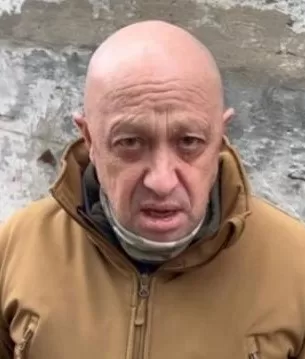
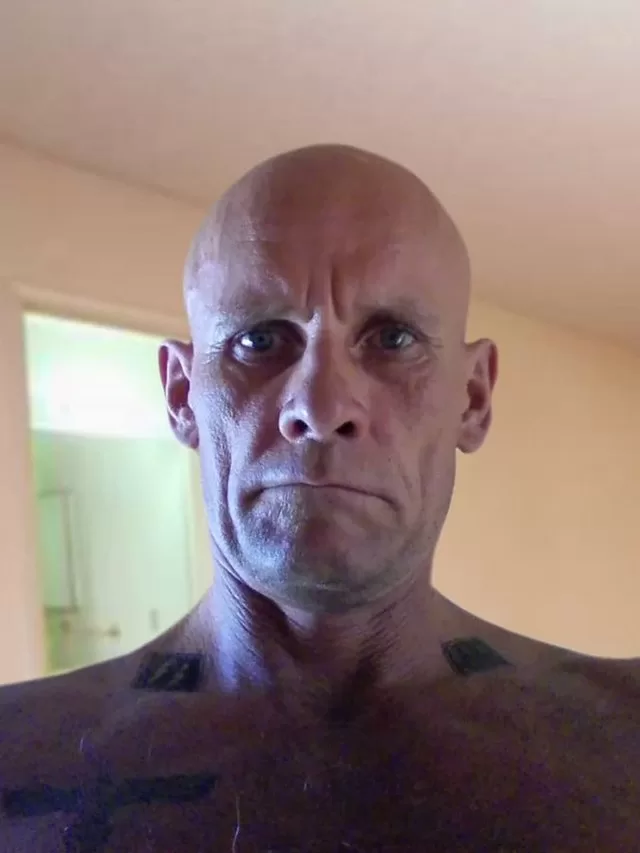
In Africa, the group’s activities mainly consist in ensuring the security of African rulers in exchange for access to natural resources. Their presence often involves some level of fighting against rebels or terrorists that threaten their “client governments”.
As we shall see in this article, the Wagner group is responsible for multiple atrocities, which explains why it has drawn so much attention. For example, in 2017, Wagner mercenaries tortured and then decapitated a Syrian army deserter. They recorded it on camera and took group pictures with the Syrian soldier’s head at their feet. Similarly, in November 2022, they used a sledgehammer to kill a Russian man who had defected to Ukraine. Of course, they posted the video of the killing online… In January 2023, the US designated the Wagner group as a “transnational criminal organisation” in order to impose sanctions more easily and thus impact Russia’s war effort in Ukraine.
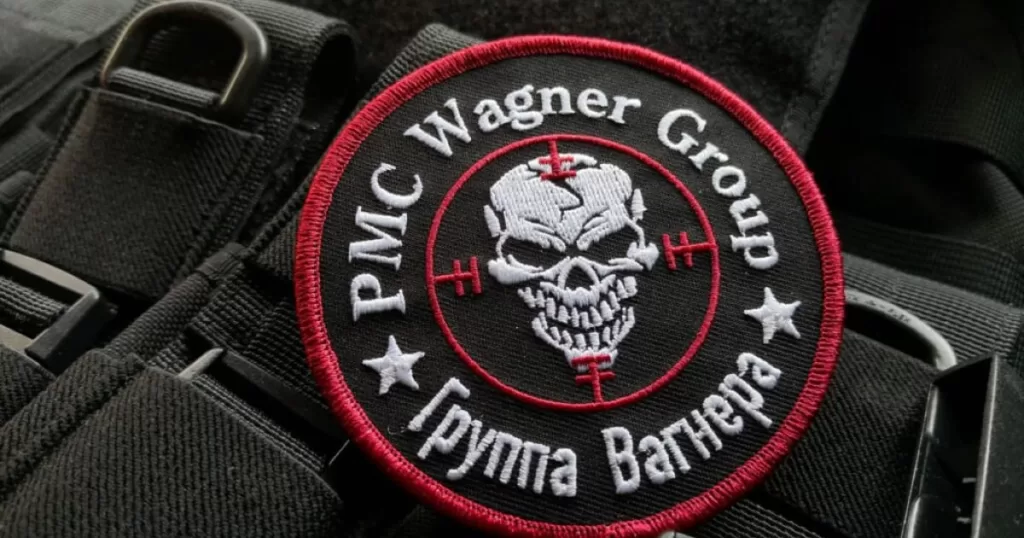
III. Russia’s narrative in Africa
Russia has developed a narrative accusing Western powers of imperialism and neo-colonialism in Africa. Its objective is twofold:
- Reviving the memory of colonisation to make Africans keep on seeing Western powers as oppressors
- Ex: in former Sahelian French colonies, France is accused of neo-colonial meddling and was ousted from Mali (August 2022) and Burkina Faso (February 2023).
- Portraying Russia as a defender of oppressed peoples’ freedom and sovereignty, as it had been during the Cold War
We should take into account the fact that Russia has inherited from the USSR the image of a country that joined African countries in their struggle for independence by supporting them financially and militarily.
Russia keeps on repeating that it does not interfere in African countries’ internal affairs, especially with regards to human rights. Thus, it wants to convey the image of a country that respects African states’ sovereignty, unlike Western powers that take the liberty to criticise African politics and try to shape it according to their own values. For instance, in Uganda, the US currently threatens to end its HIV assistance program if president Museveni enacts an anti-homosexuality bill.
So as to spread its messages across African populations and sway public opinion, Russia resorts to troll farms that set thousands of fake social media accounts (mainly on Facebook). That’s through this means that, in April 2022, the Wagner group tried to accuse France of killing civilians by filming dead bodies in the sand near a French military base in Gossi, Mali. However, a French drone recorded the mercenaries as they were burying the corpses.
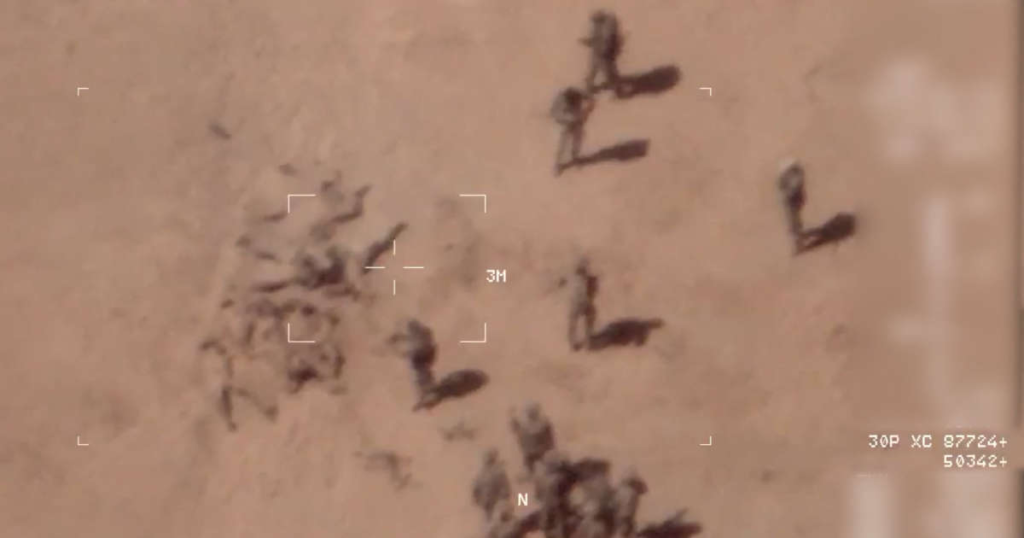
You’ll find below some screenshots of two Russian propaganda videos that circulated on social media in December 2022 and January 2023. They depict France as a colonial and imperialist State that loots African resources and whose ultimate goal is to “conquer all Africa” starting with the Sahel region. France appears either as a rat, a giant snake or as zombies. Wagner however is presented as Africa’s saviour who helps African States, namely Mali, Burkina Faso and the Ivory Coast, to repel French forces.
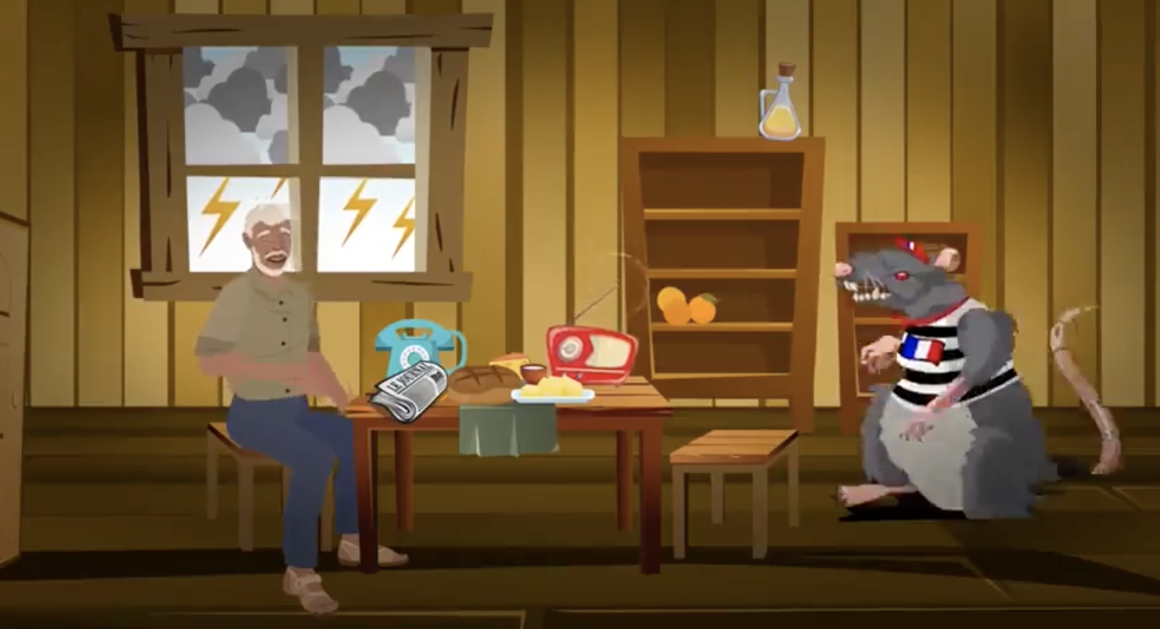
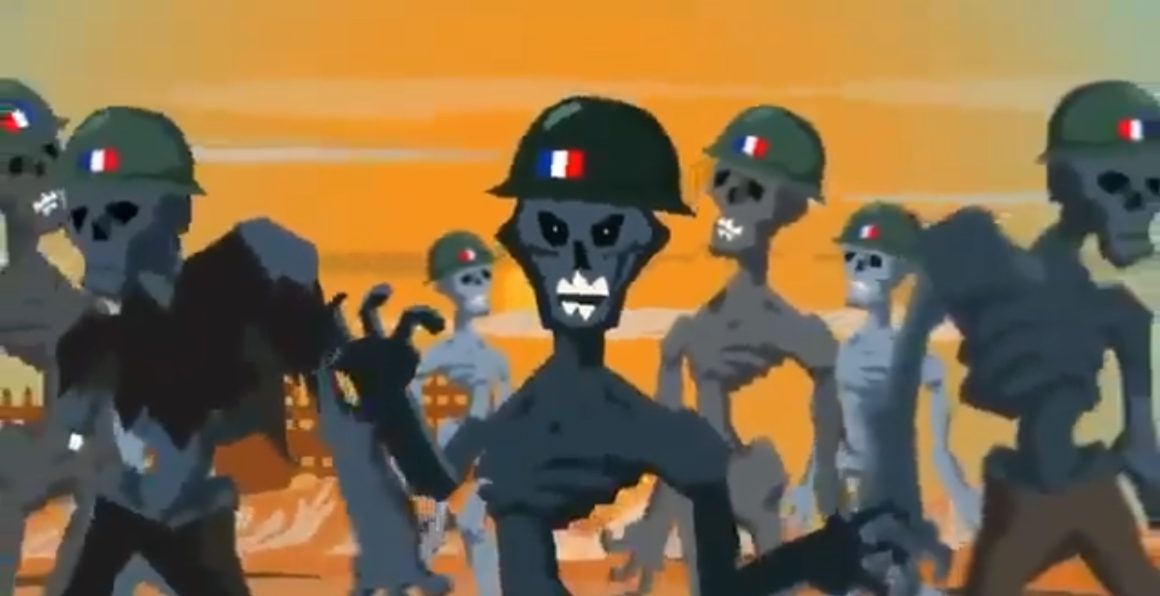
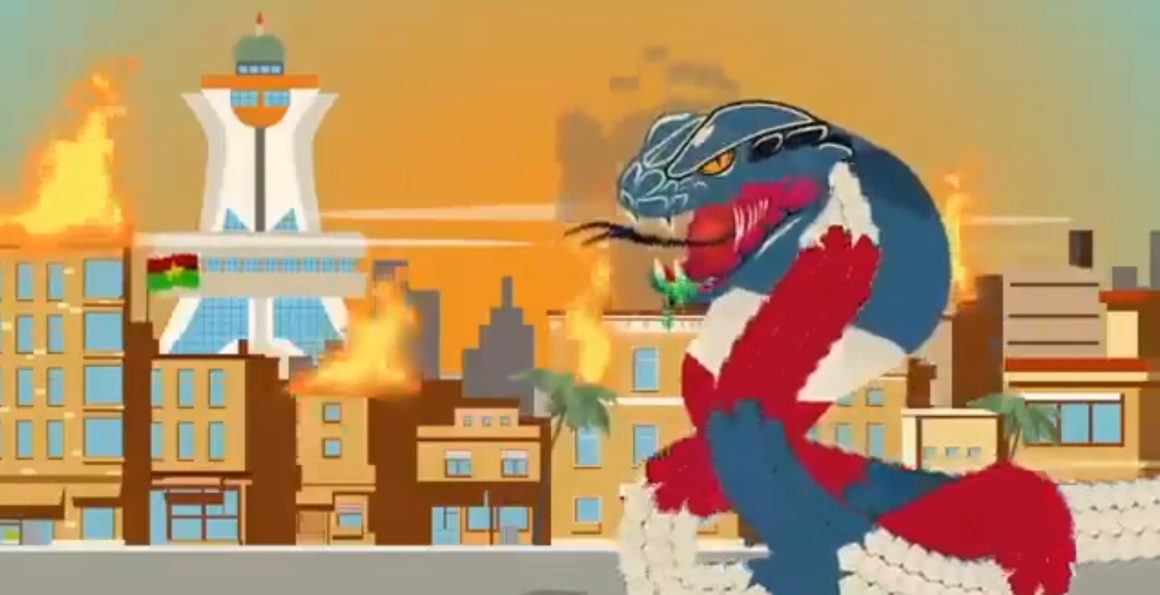
You will find more detailed information about the spread of Russia’s narrative in Africa in this article: Pan-Africanism: between genuine aspirations and ideological hijacking.
IV. Political interference
By seeking to shape African countries’ politics and institutional frameworks, Russia seeks to maintain “clients” who owe it in power.
For example, in Mali, Prigozhin works to maintain colonel Assimi Goïta in power. However, the rules of the next presidential elections forbid current junta leaders to run. Therefore, Russian teams push his candidacy in the media, inconspicuously trying to present it as the evident choice for the country. It is worth noting as well that the Wagner group wishes to delay elections so as to keep a continuity at the head of the country with people who favour its interests.

Likewise, in the Central African Republic (CAR), Russia endeavours to modify the constitution to allow Faustin Archange Touadéra to run a 3rd time for the presidential office. In October 2022, Danièle Darlan, who was the president of the Constitutional Court and the main opponent to the constitutional reform, was dismissed by presidential decree. Faustin Archange Touadéra has clearly been turned into a puppet since he owes Wagner for thwarting a coup against him in 2020.
Wagner “political consultants” regularly intervene during elections like in Madagascar and Zimbabwe in 2018 and in the Democratic Republic of Congo, Mozambique and South Africa in 2019. Their goal is both to identify candidates who could align with their interests and to help get elected those who already adhere to Russian views. They resort to anti-Western propaganda on social media, false accusations against opposition candidates, false exit polls, disruption of demonstrations with local police forces, and biased arguments to convince the international community of election results’ credibility.
V. Economic predation
A. Trade deals and economic exchanges
In October 2019, Putin hosted 43 African heads of state for the 1st Russia-Africa summit in Sochi where he pledged to double trade with African partners for 2024. In this endeavour, he dangled deals of nuclear power plants and fighter jets in front of them. Putin also reduced the debt of several African countries for a total of roughly $20 billion.
Africa already represents 30% of Russia’s agricultural exports. However, in the eyes of Putin, Africa is first and foremost an outlet for its stocks of weapons. Russia is indeed the biggest arm exporter to Africa.

The war in Ukraine has disrupted Russian trade patterns with international partners, especially due to EU embargoes. That’s why the country has to find new markets since its whole economy rests upon the export of energetic resources (we discussed this topic in our article TURKEY and RUSSIA : a strategic alliance?).

Commercial connections between Russia and Africa shouldn’t be overemphasised as the following graphs suggest:


B. Russian economic presence in Africa
Here is a list of Russian companies that I found and that are of strategic importance for Russia in Africa. Some of them closely cooperate with the Wagner group.
| NAME | ACTIVITY | COUNTRY | COMMENT |
|---|---|---|---|
| Alrosa | Diamonds | Angola Zimbabwe | |
| Sunland Minerals | Diamonds | Botswana | Daughter company of Alrosa |
| Diamville | Diamonds | Central African Republic | |
| Lobaye Invest SARLU | Diamonds Gold | Central African Republic | Directly linked to Wagner It is a parent company |
| Alpha Development | Gold | Mali | |
| Marko Mining | Gold | Mali | |
| Midas Ressources | Gold | Central African Republic | |
| Nordgold | Gold | Guinea Burkina Faso | |
| Severstal | Gold | Guinea Burkina Faso | |
| Esimath | Gold | Sudan | |
| Meroe Gold (Al Solaj Mining Limited) | Gold | Sudan | Directly linked to M Invest (further down) |
| Esnaad Engineering | Logistics | Sudan | Directly linked to Meroe Gold |
| Kraomita Malagasy SA/ Kraoma Mining | Mining | Madagascar | Supplier of Lobaye Invest SARLU |
| Coprenape Eco Construction SARL | Oil | Central African Republic | |
| Safinat | Oil | South-Sudan | |
| Gazprom | Oil Gas | Algeria Libya Nigeria | |
| Rosneft | Oil Gas | Egypt Mozambique (off-shore) | |
| Lukoil | Oil Gas | Central African Republic Cameroun Nigeria Ghana Egypt | |
| Rusal | Bauxite Aluminium | Guinea Nigeria | |
| Norilsk Nickel | Nickel Palladium | South Africa Botswana | |
| Uralchem | Phosphate and derivatives | Zambia Zimbabwe | |
| Vi Holding | Platinium | Zimbabwe | |
| M Invest | Precious metals (nickel, zinc, copper, lead…) | Central African Republic Sudan | Directly linked to Wagner |
| M Finance | Precious metals (nickel, zinc, copper, lead…) and security services | Central African Republic Sudan | Directly linked to Wagner through Lobaye Invest SARLU |
| Rosatom | Uranium and civil nuclear power | Egypt South Africa Nigeria Sudan Rwanda Zambia | |
| Wood International (formerly Bois Rouge SARLU) | Timber | Central African Republic | Directly linked to Wagner through Lobaye Invest SARLU |
| Broker Expert LLC | Financial loans Equipment exports | Central African Republic | Independent from Wagner but works closely with Wood International (formerly Bois Rouge) |
| First Industrial Company | Coffee Sugar | Central African Republic | Directly linked to Wagner through Lobaye Invest SARLU |
| International Global Logistic | Imports and exports | Cameroun (port Douala) | Directly linked to Wagner |
| Rosoboronexport | Arms exports | Africa | Owned by the Russian State |
| Energia | Satellite | Angola | |
| Novomet | Special equipment for oil production | South-Sudan |
VI. Russia’s strongholds in Africa
A. The Central African Republic (CAR)
The case of the CAR shows us the full extent of Wagner’s capabilities in taking control over a country. African countries should see the CAR as the situation in which they risk ending up if they let Wagner sneak in.
Military presence
French troops completely left the CAR in December 2022, but Wagner mercenaries were already present in the country since 2018 when Russia and the CAR signed a military agreement. Since then, Russia has provided arms and training to Central African forces and some 1,500 Wagner mercenaries are currently in the country.
Faustin Archange Touadéra has hired Wagner to restore order in the CAR and fight rebel groups. As a matter of fact, instead of bringing security they terrorise civilian populations. The UN has repeatedly accused the Russian group, as well as state armed forces, of systematic human rights violations but has refrained from explicitly naming the Wagner group, preferring formulas like “Russian trainers”, “instructors”, “private military company” and “Russian allies” (sources: ONU1, ONU2, ONU3, ONU4, HRW).
Economic predation
In April 2023, leaked documents revealed that the Central African government pays 400 million CFA francs every week (€29 million/year) to the Wagner Group. In parallel, the payment of Central African soldiers’ wages is regularly delayed, if not made at all.
On top of that, we ought to take account of the exploitation of natural resources by companies that finance Wagner’s activities like Lobaye Invest SARLU and its multiple daughter companies. For example, Wagner controls the gold mine of Ndassima that has reserves worth €2.5 billion. In order to get the most of CAR gold mines, the Wagner group conducts operations to seize mines from rebels, particularly along the borders with Chad and Sudan.
In May 2022, the CAR became the second country in the world (after El Salvador) to use bitcoin as an official currency. This could be a way for the Wagner group to channel money more easily and discreetly from and to Russia, thus bypassing international sanctions.
Social and cultural influence
Lobaye Invest SARLU and the Russian embassy finance the popular Radio Lengo Sengo. This radio station is extensively used by Blaise Didacien Kossimatchi, member of the pro-government “Galaxie Nationale” platform, and Harouna Douamba, president of “Aimons notre Afrique,” an association also financed by Lobaye Invest. Both of them regularly organise anti-French demonstrations in Bangui, calling for a greater Russian presence in the country.
Besides, “Russian Homes” emerged in the country with the objective of promoting Russian culture and language as well as the Russian academic system. Thus, Russia seeks to create a pro-Russia local intellectual elite. Moreover, Russian is now compulsory at Central African universities alongside Sango and French.
In order to make its presence accepted, but also make the population docile, Russia organises football games, Taekwondo tournaments, poetry competitions and the election of Miss Central Africa. It also regularly gives food products to poor towns and praying mates to Muslim communities like the Fula who fear Russian exactions.
This kind of actions is also the opportunity to spread Russian propaganda. For instance, Russia produced two movies (“Tourist” in 2021 and “Granit” in 2022) and one animated movie (“LionBear” in 2019) that aimed at portraying Russian agents as instructors that would never take up arms but always be in support of state armed forces. They also represented Russians as heroes that would save innocent populations victim of rebel groups. The goal was also to show that Russia will always be by the side of the Central African government to fight for justice, unlike Westerners who fight to impose their values, and particularly democracy. Lobaye Invest SARLU produced “LionBear” and projected it freely outside to Bangui inhabitants.

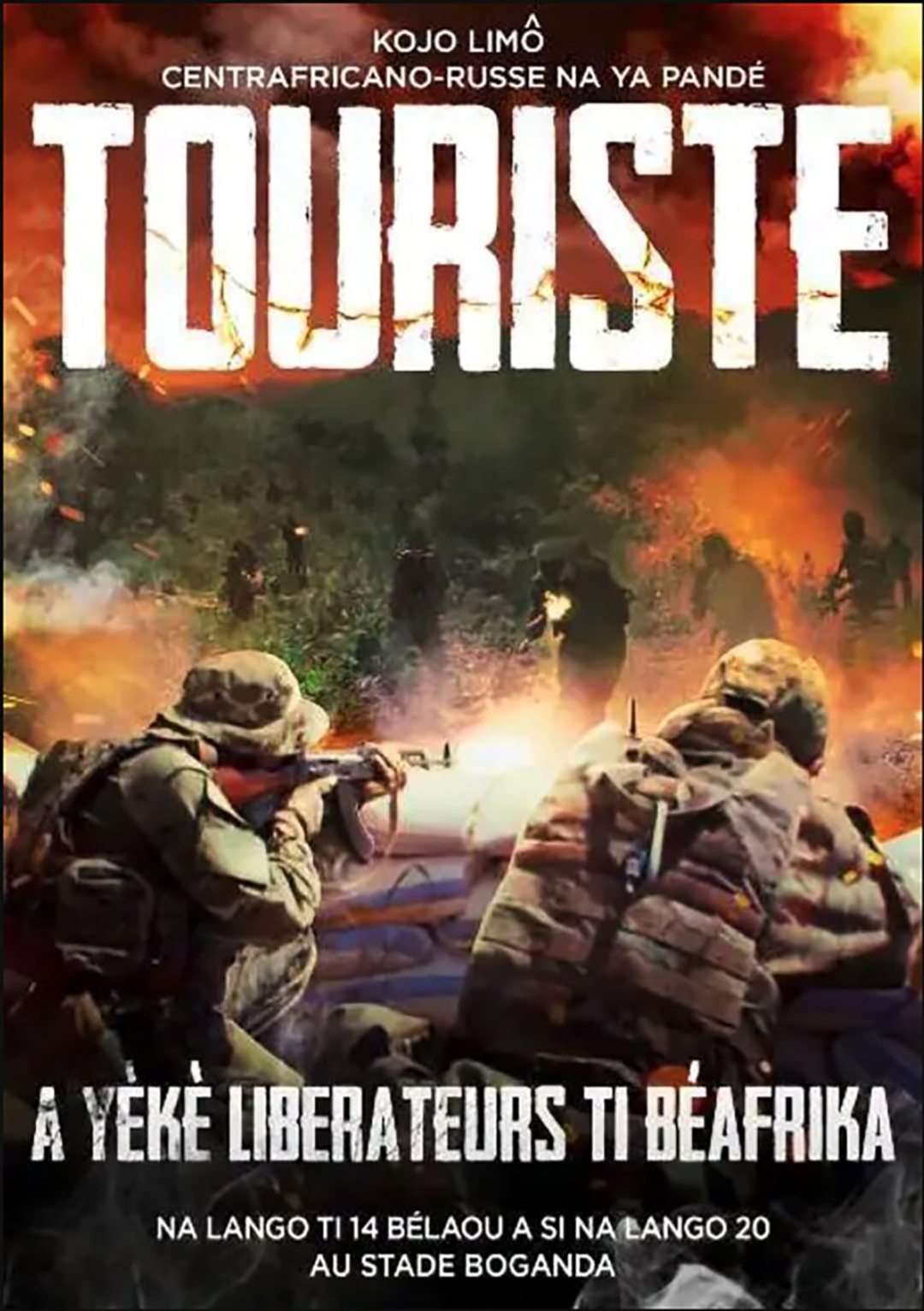
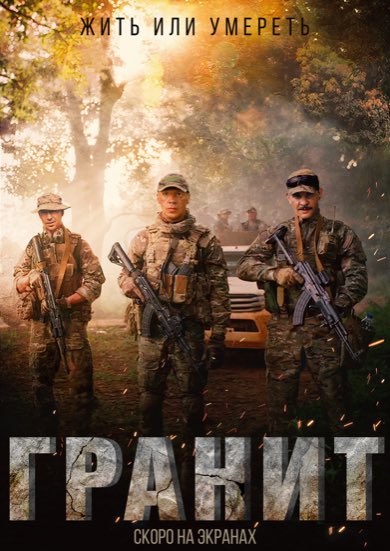
B. In the Sahel (Mali and Burkina Faso)
Mali
The Wagner group arrived in Mali following 2 coups within less than a year (August 2020 and May 2021). We can confidently assert that the Wagner group played a decisive role in the departure of French troops in August 2022.
To this day, we think that there are around 1,500 Wagner mercenaries fighting for the Malian government. Yet, Bamako denies having called on these mercenaries and prefers referring to them as “instructors”. Therefore, they are far less visible in Bamako than in Bangui, CAR, because Mali doesn’t assume resorting to the services of the Russian private military company.
Moreover, the Kremlin denies any link with Wagner but given that the group doesn’t possess the means to transport its troops and equipment from Russia to Mali, we can assume that the Russian State provides transport planes.
According to US intelligence, Mali pays more than $10 million per month to the Russian private military company. However, given Mali’s financial shortcomings, it certainly pays part of the sum in kind but the payment of Wagner’s activities remains quite opaque.
As a matter of fact, it is difficult for the Wagner group to exploit mines due to:
- constraining government regulations (the junta doesn’t seem to be in a hurry to give control of all its mines to its Russian ally);
- international competition with Canadian and Australian companies that already exploit Fekola, Loulo-Gounkoto and Syama mines;
- rebel groups like Tuaregs in Northern Mali that control some mines and oppose Wagner’s presence.
Despite these difficulties, the Wagner group still exploits gold mines in Mali (South of Bamako) but in an artisanal way. Gold is then sent to Dubai that serves as an international hub for this kind of traffic.
Like in the CAR, the Wagner group is responsible for multiple exactions against civilian populations in Mali. For example, in March 2022, Wagner mercenaries and Malian militaries killed around 500 inhabitants in the village of Moura under the justification that the village was a hideout for jihadists. Most of the victims were Fula people. Malian senior officials disapprove of these methods and have asked the group to stop mass killings like this one. Since then, the Wagner group has “only” committed minors exactions against civilians, mainly in the region of Mopti in central Mali.
Burkina Faso
In August 2018, Burkina Faso signed a military cooperation deal with Russia but its current president, captain Ibrahim Traoré, still officially refuses Wagner’s help. However, in December 2022, Ghana claimed that Russian mercenaries were seen on its northern borders with Burkina Faso.
Moreover, the Wagner group organises regular demonstrations in Ouagadougou with demonstrators holding Russian flags and demanding their government to accept Russia’s help.
In January 2023, without any warning, French troops were given 1 month to pack and leave the country. In the meantime, Burkina Faso has been buying Russian military equipment and will receive Russian instructors to train its armed forces.
C. Sudan
The Wagner group is present in Sudan since 2017 but Russian economic presence has been recorded for more than a decade now. Sudan is the 3rd largest gold producer in Africa and Russia is lusting after this precious metal. In fact, sanctions related to the war in Ukraine have jeopardised Russia’s financial and monetary stability.
The Wagner group offered its support to Omar al-Bashir in 2018-2019 in order to quell popular demonstrations. He was eventually toppled in 2019 and a civilian transition government was established. However, Russia helped generals al-Burhan and Dagalo (aka Hemedti) overthrew this transition government to establish a military regime that wouldn’t look too much into their mining activities.
Russia already cooperated with general Hemedti’s Rapid Support Forces in the Darfur region and other parts of Sudan to secure Meroe Gold’s mining activities. The Wagner group has in exchange provided the Sudanese paramilitary with weapons and training.
According to a July 2022 CNN article, at least 16 cargo planes illegally left Sudan for the Syrian port of Latakia since the beginning of 2021. A Russian stronghold in Syria where Putin enjoys a close relationship with Bashar al-Assad. Gold also moves illegally via land routes between Sudan and the CAR.
At least 85% of Sudan’s gold is sold illegally and smuggled out of the country. Russia is the market leader and is known for conducting business off-the-books: the Sudanese government losses at least several hundreds of millions of dollars in tax revenue every year…
We don’t know yet what the prospects are for Wagner in Sudan given the current standoff between general al-Burhan and general Hemedti. Wagner very probably backs the Rapid Support Forces.
D. South-Africa
South-Africa’s strong connection with Russia dates back to when the Kremlin supported the African National Congress (ANC) political party in the fight against apartheid. The ANC governs the country since 1994 when Nelson Mandela got elected president. Russia and the presidential party still have a close relationship such that the ANC Youth League sent observers to Russia’s annexation referenda in the oblasts of Donetsk, Kherson, Luhansk and Zaporizhzhia in September 2022.
On a military note, South-Africa conducted joint naval exercises off its shores in 2019 and in early 2023 with Russia and China. Furthermore, the US suspects South-Africa of having loaded weapons onto a Russian ship near Cape Town (Simon’s Town naval base) in December 2022. The US have accused South Africa of not following through with their non-alignment policy. Let’s not forget that South-Africa is part of the BRICS (Brazil, Russia, India, China and South-Africa) and as such strives to propose alternatives to Western hegemony.
In March 2023, the International Criminal Court (ICC) issued an arrest warrant against Vladimir Putin for child deportation. The Russian president is due to attend a BRICS summit in August 2023 in South-Africa where he will have to be arrested. If South-Africa refuses to do so it will deal a severe blow to the credibility of the global governance system that is overwhelmingly controlled by Western States. Let’s note that South-African president Ramaphosa recently announced that South-Africa should leave the ICC, before backtracking hours later.
VII. Limits of the Russian influence in Africa
A. Lack of knowledge about Africa and local cultures
According to Kirill Babaev, acting director of the Institute of China and Modern Asia at the Russian Academy of Sciences, Russia lacks people with “knowledge of the languages, specifics, and business customs of the continent”. Therefore, his country should form and recruit specialists that can understand local realities and adapt Russia’s strategy and approach in Africa.
For example, the animated movie “LionBear” only had a limited impact on Bangui inhabitants because it stages animals that speak, something that is really odd in the Central African culture. In Sudan this time, messages that publicise the aid Russia sends to the population often appear in error-riddled Arabic.
B. The Wagner group’s bad reputation
The Wagner group’s activities in Africa are now well documented. African leaders may start understanding that these mercenaries’ presence amounts to looting of their resources and massacres of their populations. They may also start seeing that this group thrives in chaos. Indeed, instability is the reason why Wagner is called upon. Therefore, instability has to be maintained to justify the group’s presence. As a consequence, Russia risks losing credibility in the eyes of its African partners.
Nevertheless, partly thanks to its seat at the UN Security Council, Russia will still be regarded as a partner of last resort when a country wants to get around human rights norms and financial regulations. It can also be the case when a ruler becomes isolated on the international stage or when he wants to cling onto power.
Follow us on Facebook, Instagram, Twitter and LinkedIn not to miss any new article !

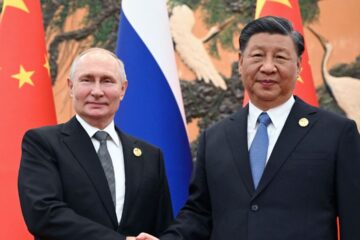

2 Comments
CHINA in AFRICA, a “shared future”? – geopol-trotters · 11 September 2023 at 6:48 am
[…] arm trade, between 2010 and 2021, China accounted for 22% of arm exports to Sub-Saharan Africa, Russia being by far the largest exporter. At first China sold small-size weapons but it is now providing heavier ones like drones, for which […]
CENTRAL AFRICAN REPUBLIC : civil war and Russian predation – geopol-trotters · 13 July 2023 at 2:38 pm
[…] Russia obtained several permits to exploit CAR natural resources. Here are some Russian companies that operate in CAR and directly finance the Wagner […]